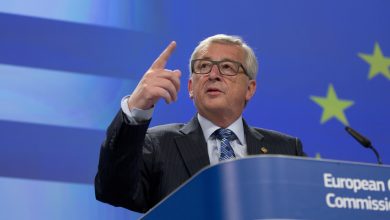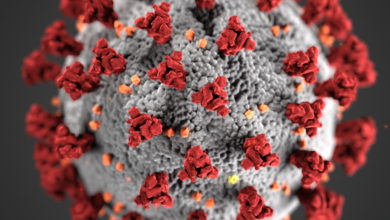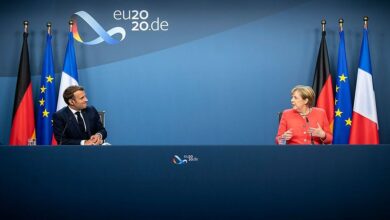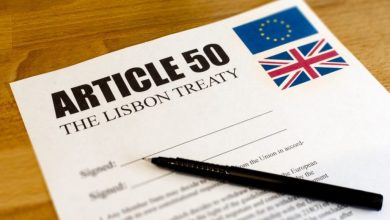Turkish Elections: All You Need To Know

On 24th June, Turkish citizens will head to the polls and vote in snap presidential and parliamentary elections. The elections were called in April by the President Recep Tayyip Erdoğan after last year’s constitutional referendum.

The controversial referendum, held on 16 April 2017, involved multiple changes to the Turkish institutional set-up. The main changes include the holding of joint elections, the unification of the figure of “Head of State” and “Head of Government”, increasing the number of MPs to 600 from 550 and limitations on the legislative power of the Parliament.
In addition, under the new constitutional framework, the president can maintain an affiliation to his political party and can appoint four out of 13 judges of the Supreme Board of Judges and Prosecutors.
The elections, previously scheduled for the 3rd November 2019, have been anticipated and will see the full implementation of the constitutional reform.
Parliamentary election
The 600 members of the Grand National Assembly of Turkey, the country’s unicameral legislative body, will be elected across 87 electoral districts through a party-list proportional representation system. Seats will be distributed in proportion to the number of votes received by the party and on the basis of a list of candidates. A threshold of 10%, first introduced in 1982, is required for parties wishing to get into Parliament.

There are two main alliances running in the parliamentary election: the People’s Alliance and the Nation’s Alliance.
The former is a joint effort including AKP, Erdoğan’s party, and the Nationalist Movement party (MHP). The two will run together in both elections. A third member, the Free Cause Party (HÜDA-PAR) will support the alliance in the presidential election, but not in the parliamentary one.
The latter includes the liberal conservative İYİ Party, the sunni Felicity Party (SP) and the social democratic Republican People’s Party (CHP). The Nation’s Alliance has been criticised by the People’s Alliance as a ‘non-conformists’ aggregation, due to the variety of views and intentions of the forces it represents.
The pan-islamist Free Cause Party (HÜDAPAR), the left-wing nationalistic Patriotic Party (VATAN), and the pro-minorities People’s Democratic Party (HDP) are running independently.
Main parties
 The Justice and Development Party (Turkish: Adalet ve Kalkınma Partisi – AKP), founded in 2001 by Recep Tayyip Erdoğan and members of existing conservatives parties, has its roots in Turkey’s Ottoman past and Islamic identity, although party leaders are quick to refuse the label of “Islamic party”.
The Justice and Development Party (Turkish: Adalet ve Kalkınma Partisi – AKP), founded in 2001 by Recep Tayyip Erdoğan and members of existing conservatives parties, has its roots in Turkey’s Ottoman past and Islamic identity, although party leaders are quick to refuse the label of “Islamic party”.

The Republican People’s Party (Turkish: Cumhuriyet Halk Partisi – CHP), founded in 1919 as a resistance organization and in 1923 as political party, is the main opposition party. The six arrows in its logo represent the key principles of Kemalism: republicanism, nationalism, statism, populism, laicism and reformism.
The latest opinion polls see AKP in the lead at 39.9%. Opposition party CHP are the current runner up with 25.4% of the vote, while the People’s Democratic Party sits a distant third at at 12.3%. İYİ is napping at the heels of the top three, polling at 11.4%, with the Nationalist Movement at 7.4% and Felicity at 2.6%.
Presidential election
The presidential election see Erdoğan as the only candidate for the People’s Alliance, while the Nation’s Alliance candidates all three of its leaders: Muharrem İnce for CHP, Meral Akşener for İYİ, and Temel Karamollaoğlu for Felicity.
Selahattin Demirtaş is running for HDP and Doğu Perinçek for the Patriotic Party, both outside of alliances.
The presidential election consists of two turns. While the three parties of the Nation’s alliance run as separate for the first round of the presidential election, it is expected that the alliance will support the candidate that will move to the second round.
Main Candidates

Recep Tayyip Erdoğan has been the President of Turkey since 2014 and has previously covered the role of Prime Minister from 2003 to 2014. Seen as the main favorite for this elections, he founded the Justice and Development Party (AKP) in 2001 and was elected as Prime Minister two years after that.
Criticized for his authoritarianism and Islamic chauvinism, Erdoğan has changed the historic secular face of Turkey. The situation escalated when in 2016, an unsuccessfully coup d’état tried to remove Erdoğan from his position. The resulting state of emergency has not yet been lifted.

The main opposition candidate is Muharrem İnce, former physics teacher. He’ll be standing for the secularist Republican People’s Party (CHP). Differently from his colleagues, İnce was able to gather support beyond his core secular base. Should he make it to the second turn, Ince might actually stand a chance.
The latest opinion polls see Erdoğan in the lead for the first turn with İnce and Akşener respectively as runner ups. The second turn sees Erdoğan emerging with a narrow majority both against İnce (53.7 vs. 46.3) and against Akşener (51.2 vs. 48.8).
Did you enjoy this article? You may also like What’s Going On in Italy, Explained to Everyone or Gold-plating: how EU States self-overregulate and then blame Brussels.





